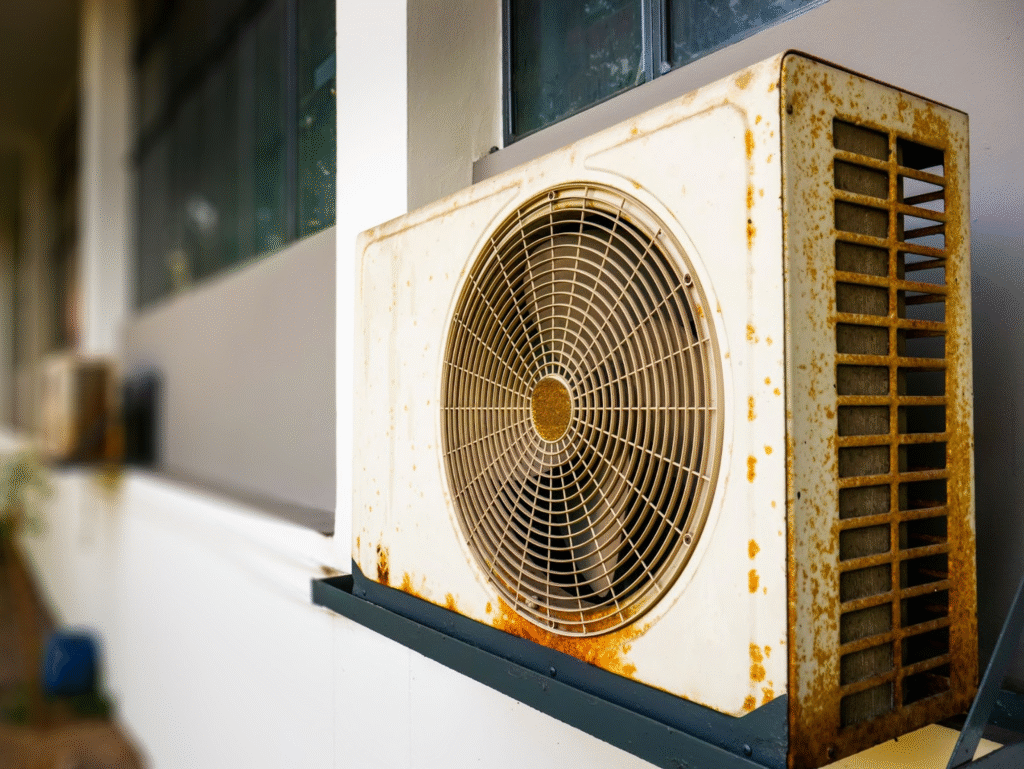
As the seasons change and temperatures start to shift, now’s the perfect time to check in on your HVAC system. Whether you’re bracing for summer’s intense heat or winter’s nightly chill, your comfort depends on a well-functioning furnace, heat pump, or air conditioning system. But what happens if your system isn’t keeping up? Should you repair it or consider a full replacement?
At Autumn Air Heating & Cooling, we know that decision isn’t always easy. Luckily, you’re in the right place! These pre-season tips will guide you through assessing your system, weighing repair versus replacement, and preparing your HVAC system for whatever comes next. Let’s get started!
Know the Signs: Is Your HVAC System Struggling?
Before you dive into repairs or start researching new systems, take a step back and evaluate your current setup. Common symptoms that your HVAC system may need attention include:
- Inconsistent temperatures throughout the home
- Unusual noises like banging, rattling, or buzzing
- Short cycling (the system turns on and off rapidly)
- Humidity problems or poor indoor air quality
- Spikes in your utility bill without increased usage
- A thermostat that doesn’t seem to match room temperature
- Weak airflow from vents
- Rooms that never seem to get warm or cool enough
If you’re frequently troubleshooting these issues, it’s time to ask whether your system is worth saving or if a replacement might give you better energy efficiency, cost savings, and peace of mind.
Repairing: When It Makes Sense
There’s a simple rule of thumb many HVAC professionals use: if the cost of the repair is less than 50% of the cost of a new unit, and your system is under 10 years old, repairing it may be the best option.
Minor repairs such as replacing a thermostat, fixing a small refrigerant leak, changing a blower motor, or unclogging an evaporator coil are usually cost-effective fixes. If your compressor, condenser, or pump components are still in good shape, your system might have a lot of life left in it. And if your maintenance history is solid — including regular tune-ups and filter replacements — repairs may keep your system running smoothly for a few more seasons.
Replacing: When It’s the Smart Move
While repair may seem cheaper upfront, replacement often offers a better return on investment in the long term. Here’s when it makes more sense to upgrade:
- Your unit is 10–15+ years old, especially if it’s a gas furnace or air conditioning unit that’s inefficient by today’s standards
- You’ve had frequent breakdowns, and heating or AC repair costs are piling up
- Your Seasonal Energy Efficiency Ratio (SEER) is low — newer models offer significant energy savings
- You want to take advantage of ENERGY STAR® certified systems and available tax credits
- Your system uses outdated refrigerants like R-22, which are expensive and are being phased out
- You’re dealing with carbon-producing or outdated systems that aren’t environmentally friendly
Newer HVAC systems are designed to reduce carbon monoxide risks, optimize airflow, improve indoor air quality, and keep your home comfortable with less energy use. That translates to better comfort and long-term utility savings.
Pre-Season Preparation: What You Should Do Now
Getting ahead of the weather gives you an edge. Here’s how to make sure you’re ready:
- Schedule seasonal maintenance. Autumn Air Heating & Cooling’s preventative HVAC maintenance services ensure your HVAC system is running at peak efficiency before temperatures shift
- Check for leaks. Small issues in refrigerant lines, ductwork, or gas lines can lead to bigger (and more expensive) problems if left untreated
- Test your thermostat. Make sure it’s reading correctly and keeping your system responsive. If it’s outdated, upgrading to a programmable or smart thermostat can offer better control and energy savings.
- Evaluate your system’s age and performance. Use this pre-season window to decide whether a repair or full replacement is more cost-effective for your home.
- Review your warranty and rebate options. You might qualify for a tax credit or manufacturer rebate by upgrading to a system that lowers your carbon output, such as an ENERGY STAR® certified unit.
Invest in Comfort and Confidence
Deciding between HVAC repair and replacement can feel like a big decision, but you don’t have to make it alone. At Autumn Air Heating & Cooling, we’re here to help you evaluate your system honestly, recommend the best course of action, and ensure your home is ready for the season ahead. Whether you need a simple fix, a thorough system check, or a full installation, we’ve got the tools, expertise, and service you can trust.
Don’t wait until temperatures drop or climb too high. Schedule your pre-season HVAC evaluation with Autumn Air Heating & Cooling today and stay comfortable all year long!
